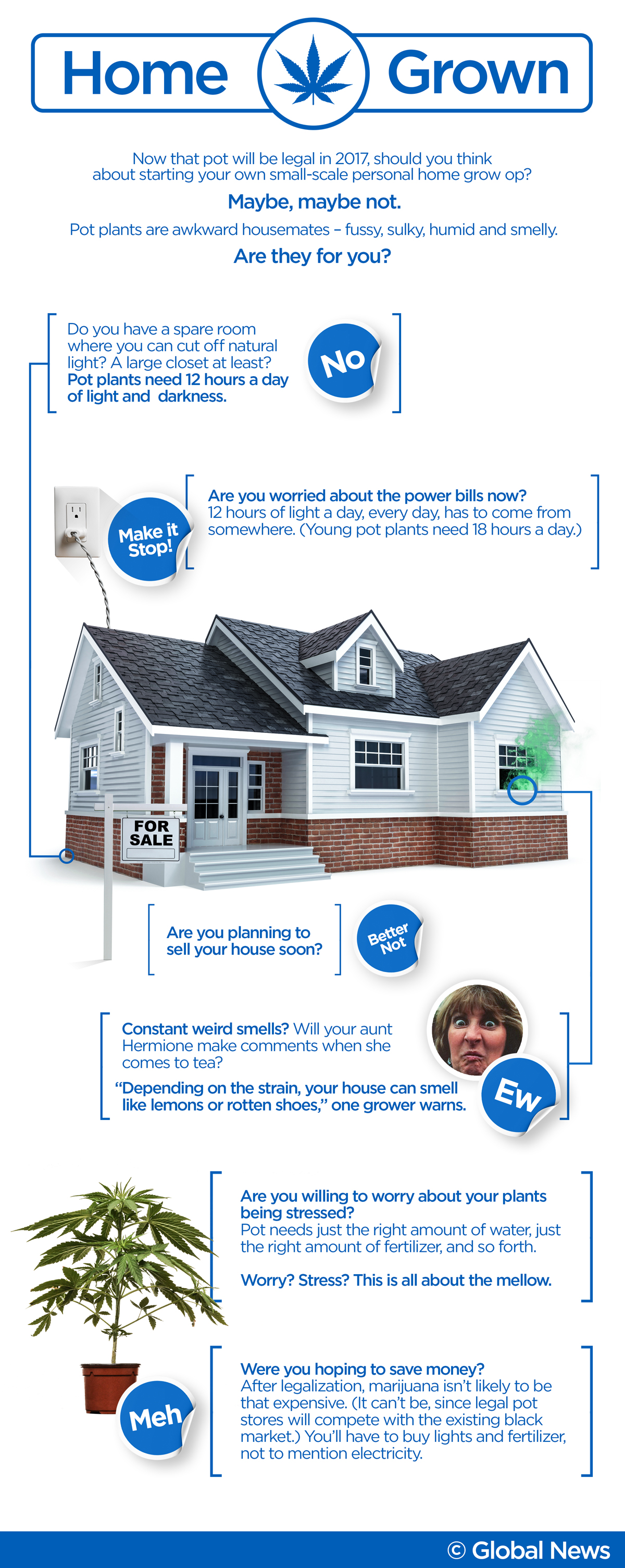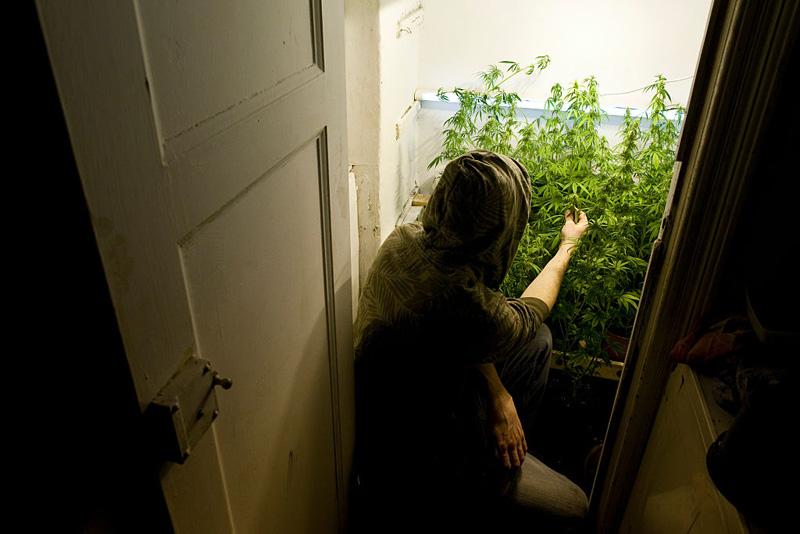At some point in the near future, buying recreational marijuana will be legal.

Will Canadians be allowed to grow their own? Probably, as most U.S. states that have legalized pot allow people to grow small quantities.
But will you want to?
Pot plants are demanding house guests, says Bruce Linton, CEO of Canopy Growth, a large medical marijuana growing facility in Smiths Falls, Ont., which plans to produce recreational pot after legalization.
“The plants yield a hell of a lot of humidity,” he says. “They need 12 hours of light, so you need to do that. They need 12 hours of dark — they start to mutate if they get too much light when they’re in flower.”
“Depending on the strain, your house can smell like lemons or rotten shoes. We have a strain, and this is a big part of the appeal, called UK Cheese. It smells really strongly.”
Linton says he would like to supply a home grow market with seeds after legalization, though he predicts that “it will not be a long-term big activity.”
Air filter systems can deal with the powerful smell, says Brandon May of Toronto’s True North Seed Bank, a marijuana seed retailer. But that solution comes with its own space-hogging issues.
READ: Why home marijuana cultivation will be a headache for regulators
May says he’s building an indoor home grow setup of his own that involves a tent that’s 3′ by 3′ at the base and 6½’ tall, equipped with a fan, lights and an air filter.
“The air filter should take out most of the smell, if you get a good carbon filter and a fan.”
All of those hours of lighting can use up a lot of power, too.
May, who concedes that “electricity bills are ridiculously high at the moment,” recommends LED grow lights: “They’re a little more costly on startup, but you’ll save money in the end.”
WATCH: The benefits of medical marijuana have been touted before, but a team of researchers at UBCO says this particular study should help convince any medical practitioners who still have doubts. The study finds that medical cannabis should play a role in treating mental illness, including addiction. Kelly Hayes reports.

The federal commission that’s designing Canada’s legal recreational pot rules has acknowledged that it needs to figure out what to do about home production, and asks organizations sending it submissions to have their say on the issue.
Another time-consuming chore, once the marijuana is ready for harvest, is ‘trimming,’ or stripping the leaves away from the buds.
“It can be quite a lot of work,” May says. “One or two small plants can take as long as six or seven hours to finish.”
How widespread will home grows be, when and if they’re legal?
“There are always going to be some folks,” Linton says. “But I do find there’s a strong parallel to home wine making — we seem to sell quite a lot of wine in stores.”
On the other hand, lots of people seem to be growing their own at the moment. May says his company has filled 12,000 seed orders since January, mostly to Canadian addresses.



Comments